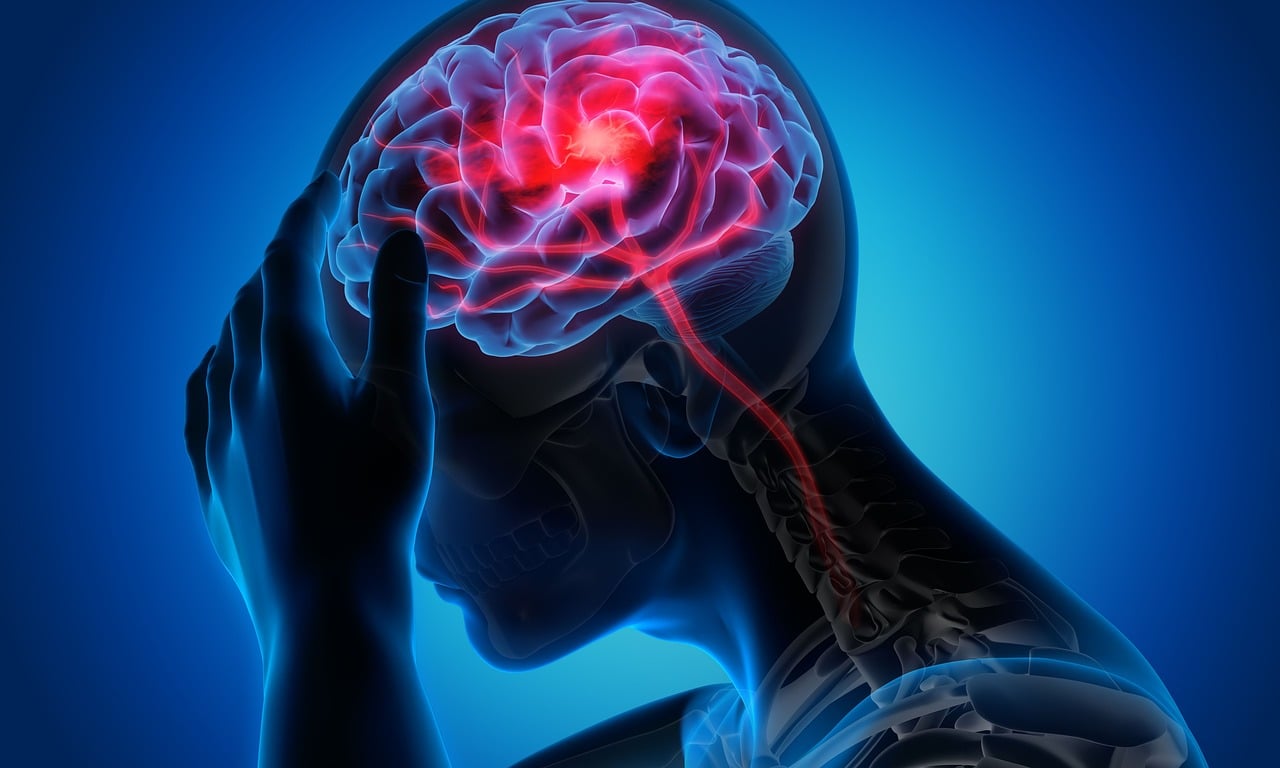The Influence of AI on Healthcare Delivery
In recent years, the emergence of artificial intelligence (AI) has been nothing short of revolutionary, especially in the realm of healthcare. Imagine walking into a doctor's office where your medical history is instantly analyzed, and tailored treatment options are presented to you in real-time. That's the kind of future AI is paving for us, transforming how healthcare is delivered and experienced. From diagnostics to treatment plans and operational efficiencies, AI is enhancing patient outcomes and optimizing healthcare delivery in ways we could only dream of a decade ago.
At the heart of this transformation is the ability of AI to process and analyze vast amounts of data quickly and accurately. Consider this: traditional diagnostic methods often rely on human interpretation, which can be subjective and prone to error. On the other hand, AI technologies utilize advanced algorithms and machine learning to sift through complex medical data, providing insights that can lead to faster and more accurate diagnoses. This not only improves patient care but also empowers healthcare professionals with the tools they need to make informed decisions.
The integration of AI in healthcare isn’t just about efficiency; it’s also about personalization. With AI, healthcare can move from a one-size-fits-all approach to a more individualized strategy. By analyzing data such as genetic information, lifestyle choices, and environmental factors, AI can help create personalized treatment plans that cater specifically to each patient’s needs. This shift towards personalized medicine is akin to tailoring a suit; it’s all about fit and function, ensuring that every patient receives the most effective care possible.
However, as we embrace these advancements, we must also navigate the ethical landscape that accompanies them. Issues such as data privacy, consent, and algorithmic bias are critical to address to ensure that AI is used responsibly and equitably. After all, the goal of integrating AI into healthcare isn’t just to improve outcomes but to do so in a way that respects and protects every individual's rights and dignity.
Overall, the influence of AI on healthcare delivery is profound and multifaceted. It’s a journey that is just beginning, and as we explore these new frontiers, we must remain vigilant in our commitment to ethical practices and patient-centered care. The future of healthcare is not just about technology; it's about enhancing human connections and improving lives.
- How does AI improve diagnostics in healthcare?
AI improves diagnostics by using advanced algorithms to analyze medical images and data, leading to quicker and more accurate disease detection. - What are personalized treatment plans?
Personalized treatment plans are tailored healthcare strategies that consider individual patient data, including genetics and lifestyle factors, to deliver the most effective care. - What ethical concerns are associated with AI in healthcare?
Ethical concerns include data privacy, the need for informed consent, and the risk of algorithmic bias affecting healthcare equity.

AI in Diagnostics
Artificial Intelligence (AI) is not just a buzzword; it's a game-changer in the realm of healthcare diagnostics. Imagine a world where diseases are identified faster than ever before, where diagnostic errors are minimized, and where patients receive the right treatment at the right time. This is not a distant future; this is happening now, thanks to the incredible advancements in AI technologies. By leveraging advanced image analysis and predictive algorithms, AI is transforming how healthcare professionals diagnose diseases, leading to improved patient care and outcomes.
One of the most significant advantages of AI in diagnostics is its ability to process vast amounts of data at lightning speed. For instance, AI algorithms can analyze medical images, such as X-rays, MRIs, and CT scans, with a precision that often surpasses human capabilities. This means that conditions like tumors or fractures can be detected with remarkable accuracy, allowing for timely interventions. A recent study showed that AI could reduce the time taken to diagnose certain cancers by up to 30%, which could be crucial for patient survival rates.
Moreover, AI isn't just about speed; it's also about accuracy. Traditional diagnostic methods are often subject to human error, but AI's data-driven approach minimizes these risks. For example, in a clinical trial, AI systems were able to identify irregularities in heart scans that were missed by human radiologists. This capability not only enhances the reliability of diagnoses but also builds trust between patients and healthcare providers.
To further illustrate the impact of AI in diagnostics, consider the following table that highlights some key applications:
| AI Application | Description | Benefits |
|---|---|---|
| Image Recognition | Analyzing medical images to detect abnormalities. | Faster and more accurate diagnoses. |
| Predictive Analytics | Forecasting potential health issues based on patient data. | Proactive healthcare interventions. |
| Natural Language Processing | Interpreting clinical notes and patient history. | Improved understanding of patient conditions. |
In addition to image analysis, AI's prowess in predictive analytics is revolutionizing diagnostics. By analyzing a patient's medical history, lifestyle choices, and genetic predispositions, AI can predict potential health issues before they manifest. This proactive approach allows healthcare providers to implement preventive measures, ultimately improving patient outcomes. For example, if an AI system identifies a patient at high risk for diabetes, healthcare professionals can intervene early with lifestyle changes or medication, potentially preventing the disease altogether.
However, the integration of AI into diagnostics also raises important questions about data privacy and security. As AI systems require access to sensitive patient information, it is crucial for healthcare organizations to adopt robust security measures to protect this data. Transparency in data handling practices is essential to maintain patient trust and ensure ethical usage of AI technologies.
In conclusion, AI is not just enhancing the diagnostic process; it's redefining it. With faster, more accurate diagnostics and the ability to predict health issues, AI is paving the way for a future where healthcare is not only reactive but also proactive. As we continue to embrace these technologies, the potential for improved patient outcomes is limitless.
- How does AI improve diagnostic accuracy? AI analyzes large datasets and identifies patterns that may be missed by human eyes, leading to more accurate diagnoses.
- What are the ethical concerns related to AI in diagnostics? Key concerns include data privacy, consent, and potential algorithmic bias that could affect healthcare delivery.
- Can AI replace human doctors? While AI enhances diagnostic processes, it is meant to assist healthcare professionals, not replace them. Human oversight remains crucial.

Personalized Treatment Plans
In today's rapidly evolving healthcare landscape, the concept of personalized treatment plans is not just a trend; it’s a revolutionary approach that tailors medical care to the individual needs of each patient. Imagine walking into a doctor's office and instead of a one-size-fits-all solution, you receive a treatment plan that is uniquely designed for you, taking into account your genetic makeup, lifestyle choices, and environmental factors. This is the power of artificial intelligence (AI) in healthcare, and it is changing the way we think about treatment.
AI technologies excel at analyzing vast amounts of data, which allows healthcare providers to create highly personalized treatment plans. For instance, by leveraging machine learning algorithms, doctors can identify patterns in patient data that might not be immediately apparent. These patterns can reveal critical insights into how different patients respond to various treatments, enabling healthcare professionals to fine-tune therapies for maximum effectiveness. It's like having a personal health coach that knows exactly what works best for you!
Machine learning algorithms are the backbone of this personalized approach. They sift through extensive datasets, pulling together information from numerous sources, including medical histories, genetic tests, and even lifestyle factors. For example, a machine learning model might analyze data from thousands of patients with similar conditions to predict which treatment options are likely to yield the best outcomes for a new patient. This level of precision is unprecedented and can drastically improve patient outcomes.
Utilizing data-driven insights is crucial in the development of personalized treatment plans. When healthcare providers have access to comprehensive patient data, they can make informed decisions that align closely with the unique needs of each individual. This approach not only enhances the effectiveness of treatments but also fosters a stronger doctor-patient relationship, as patients feel more involved and valued in their care process.
Predictive analytics takes this a step further by forecasting potential health issues before they arise. Imagine being able to anticipate a health complication and take proactive measures to prevent it. AI can analyze trends and patterns in patient data to identify risks, allowing healthcare providers to implement timely interventions. This not only enhances patient well-being but can also lead to significant cost savings in the long run.
With the integration of AI in personalized treatment plans, the future of healthcare looks brighter than ever. Patients can expect a more tailored approach to their health, leading to improved outcomes and overall satisfaction. However, as we embrace these advancements, it’s essential to remain vigilant about the ethical considerations that accompany this technology to ensure that every patient receives equitable and effective care.
- What are personalized treatment plans? Personalized treatment plans are tailored healthcare strategies designed to meet the individual needs of patients based on their unique medical histories, genetics, and lifestyles.
- How does AI contribute to personalized treatment? AI analyzes extensive datasets to identify patterns and insights that help healthcare providers develop customized treatment plans for patients.
- What role do machine learning algorithms play? Machine learning algorithms process vast amounts of patient data to predict the most effective treatment options for individuals, enhancing precision in healthcare.
- Can predictive analytics improve patient outcomes? Yes, predictive analytics can forecast potential health issues, allowing for proactive measures that significantly enhance patient well-being.

Machine Learning Algorithms
Machine learning algorithms are at the forefront of the healthcare revolution, acting like skilled detectives that sift through mountains of data to uncover hidden patterns. Imagine a vast library filled with books, where each book represents a patient's history, symptoms, and outcomes. Now, instead of a human librarian struggling to find relevant information, machine learning algorithms quickly scan these books, identifying trends and correlations that would take a human years to discover. This capability is not just impressive; it’s transforming the way healthcare providers approach treatment.
One of the most exciting aspects of machine learning in healthcare is its ability to analyze vast datasets. By leveraging algorithms that can learn from data, healthcare professionals can develop personalized treatment plans tailored to the unique needs of each patient. For instance, consider a patient with diabetes. A machine learning algorithm can analyze data from thousands of similar cases, examining factors such as age, lifestyle, and genetic predispositions, to recommend a treatment plan that is more likely to succeed for that specific individual.
Moreover, these algorithms are constantly evolving. They learn from new data, refining their predictions and recommendations over time. This dynamic capability is akin to a chef who improves their recipes with each new dish they prepare, ensuring that each meal is better than the last. In healthcare, this means that as more patient data becomes available, machine learning algorithms can provide increasingly accurate insights, ultimately enhancing patient outcomes.
To illustrate the impact of machine learning algorithms, let's look at some key benefits:
- Enhanced Precision: By identifying subtle patterns in patient data, these algorithms can lead to more precise diagnoses and treatment plans.
- Improved Outcomes: Tailored treatment plans based on machine learning insights can significantly improve recovery rates and patient satisfaction.
- Efficiency Gains: With algorithms handling data analysis, healthcare providers can focus more on patient care rather than administrative tasks.
In summary, machine learning algorithms are revolutionizing healthcare by providing data-driven insights that lead to personalized treatment plans. They are the unsung heroes behind the scenes, tirelessly working to ensure that each patient receives the best possible care based on their unique circumstances. As we continue to harness the power of these algorithms, the future of healthcare looks promising, paving the way for a more personalized, efficient, and effective healthcare system.
- What are machine learning algorithms? Machine learning algorithms are computational models that analyze data to identify patterns and make predictions without being explicitly programmed to do so.
- How do these algorithms improve patient care? By analyzing vast amounts of patient data, machine learning algorithms help healthcare providers create personalized treatment plans, leading to better health outcomes.
- Are there risks associated with using machine learning in healthcare? Yes, there are risks such as data privacy concerns and the potential for algorithmic bias, which must be carefully managed.

Data-Driven Insights
In today’s rapidly evolving healthcare landscape, are becoming the cornerstone of effective patient care. Imagine walking into a doctor's office where every decision made is backed by a mountain of data—sounds futuristic, right? But this is precisely what AI is enabling in healthcare. By harnessing the power of vast datasets, AI systems can analyze patient histories, treatment outcomes, and even genetic information to provide healthcare providers with actionable insights. This means that instead of relying solely on intuition or experience, doctors can make informed decisions that are tailored to each patient's unique circumstances.
Consider this: a patient with a complex medical history might have multiple factors affecting their health. Traditional methods of treatment may overlook critical nuances, but with AI, healthcare professionals can access a comprehensive overview of the patient's data. This allows for a more nuanced understanding of the patient's needs, leading to better health outcomes. For instance, by analyzing patterns in data, AI can identify which treatments have been most effective for similar patients and suggest these as potential options.
Moreover, the integration of data-driven insights into healthcare extends beyond individual patient care. It can also inform broader healthcare strategies. For example, hospitals can analyze data trends to identify common health issues within specific populations, enabling them to allocate resources more effectively. This not only enhances patient care but also optimizes operational efficiencies within healthcare systems.
To illustrate how powerful data-driven insights can be, let’s look at a simple table that summarizes the advantages:
| Advantage | Description |
|---|---|
| Improved Accuracy | AI analyzes large datasets to provide precise recommendations, reducing the likelihood of human error in diagnostics. |
| Enhanced Personalization | Insights derived from patient data allow for customized treatment plans that cater to individual needs. |
| Proactive Healthcare | Predictive analytics can highlight potential health risks before they become critical issues, allowing for early intervention. |
As we continue to embrace these technologies, it’s essential for healthcare providers to stay informed about the latest developments in AI and data analytics. This ensures that they can leverage these tools effectively to enhance patient care. Ultimately, the goal is to create a healthcare environment where decisions are not just based on the past, but are informed by real-time data and predictive modeling, paving the way for a healthier future for all.
- What are data-driven insights in healthcare? Data-driven insights refer to the actionable information derived from analyzing patient data, treatment outcomes, and other relevant metrics to improve healthcare delivery.
- How does AI improve patient care? AI improves patient care by providing healthcare professionals with accurate data analysis, leading to personalized treatment plans and proactive healthcare measures.
- What are the ethical considerations of using AI in healthcare? Ethical considerations include data privacy, informed consent, and the potential for algorithmic bias, which must be addressed to ensure fair and responsible use of AI technologies.

Predictive Analytics
is becoming a game-changer in the healthcare landscape, allowing professionals to anticipate potential health issues before they escalate into serious conditions. Imagine being able to see into the future of your health, almost like having a crystal ball that provides insights based on your unique medical history and lifestyle choices. This is not just a fantasy; it’s the power of AI-driven predictive analytics at work.
By leveraging vast amounts of data, predictive analytics can identify patterns and correlations that might elude even the most experienced healthcare providers. For instance, an algorithm can analyze data from various sources, including electronic health records, lab results, and even wearable health devices, to forecast potential health risks. This proactive approach enables healthcare providers to implement timely interventions, ultimately leading to better patient outcomes.
Consider this: a patient with a history of cardiovascular issues might not show any immediate symptoms, but predictive analytics can flag them for further monitoring based on underlying data trends. This can lead to early interventions such as lifestyle changes or medication adjustments, significantly reducing the risk of heart attacks or strokes. The beauty of predictive analytics lies in its ability to tailor care to the individual, ensuring that no one falls through the cracks.
Moreover, the integration of predictive analytics into healthcare systems can enhance operational efficiencies. For example, hospitals can better manage their resources by predicting patient admission rates, allowing them to allocate staff and equipment more effectively. This not only improves the quality of care but also optimizes costs, making healthcare delivery more sustainable.
However, while the benefits are substantial, the implementation of predictive analytics also comes with challenges. Data quality and integrity are paramount; if the data fed into these algorithms is flawed, the predictions can lead to misguided decisions. Additionally, there is a need for continuous monitoring and updating of these predictive models to ensure accuracy and relevance as new data becomes available.
In summary, predictive analytics is revolutionizing how healthcare providers approach patient care. By enabling proactive measures and personalized interventions, it enhances the overall health outcomes and operational efficiency within healthcare systems. As we continue to harness the power of AI, the future of healthcare looks not only promising but also incredibly exciting.
- What is predictive analytics in healthcare? Predictive analytics in healthcare refers to the use of statistical algorithms and machine learning techniques to identify the likelihood of future outcomes based on historical data.
- How does predictive analytics improve patient care? It allows healthcare providers to anticipate potential health issues and implement timely interventions, leading to better health outcomes.
- What are the challenges of implementing predictive analytics? Challenges include ensuring data quality, maintaining privacy, and the need for continuous model updates to keep predictions accurate.
- Can predictive analytics reduce healthcare costs? Yes, by optimizing resource allocation and preventing costly emergency interventions through early detection of health issues.

Telemedicine and AI
The integration of artificial intelligence (AI) in telemedicine is nothing short of revolutionary. Imagine being able to consult with your doctor from the comfort of your home, while advanced algorithms analyze your health data in real-time. This is not just a futuristic dream; it's happening right now. Telemedicine platforms powered by AI are enhancing remote patient monitoring, allowing healthcare professionals to deliver timely interventions and maintain continuous patient engagement. With the rise of telehealth, patients no longer need to wait weeks for an appointment; they can connect with their healthcare providers instantly, leading to quicker diagnoses and treatments.
AI technologies are streamlining the process of virtual consultations. For example, chatbots can triage patients by asking preliminary questions and gathering essential information before they even see a doctor. This not only saves time but also ensures that healthcare providers have the necessary information at their fingertips to make informed decisions. Additionally, AI can analyze patient interactions to identify trends, ensuring that healthcare professionals are aware of any potential issues that may arise during remote consultations.
Moreover, the ability of AI to analyze vast amounts of health data allows it to provide personalized recommendations to both patients and healthcare providers. For instance, if a patient is managing a chronic condition like diabetes, AI can offer tailored advice based on their specific health metrics, dietary habits, and lifestyle choices. This level of personalization can significantly enhance patient outcomes, making healthcare not just reactive but proactive.
As we embrace this digital transformation, it's crucial to consider the implications of AI in telemedicine. While the benefits are substantial, there are challenges to address, such as ensuring data privacy and maintaining the human touch in patient care. After all, healthcare is not just about algorithms; it's about people. Striking the right balance between technology and human interaction will be key to the future of telemedicine.
To illustrate the impact of AI in telemedicine, consider the following table that highlights some key benefits:
| Benefit | Description |
|---|---|
| Improved Access | Patients can connect with healthcare providers from anywhere, reducing geographical barriers. |
| Real-Time Monitoring | AI can track patient health metrics continuously, alerting providers to any concerning changes. |
| Cost Efficiency | Telemedicine reduces the need for physical visits, saving both time and money for patients and healthcare systems. |
| Enhanced Patient Engagement | AI tools can encourage patients to take an active role in their health management through reminders and educational resources. |
In conclusion, the fusion of AI and telemedicine is transforming how we think about healthcare delivery. By enhancing remote monitoring, personalizing patient interactions, and streamlining processes, AI is paving the way for a more efficient and effective healthcare system. As we continue to navigate this exciting frontier, it's essential to keep patient-centric care at the forefront of these technological advancements.
- What is telemedicine? Telemedicine refers to the use of technology to provide healthcare services remotely, allowing patients to consult with healthcare providers without needing to visit a physical location.
- How does AI enhance telemedicine? AI improves telemedicine by enabling real-time data analysis, personalized patient interactions, and efficient administrative processes, ultimately leading to better patient outcomes.
- Are there privacy concerns with AI in telemedicine? Yes, there are significant privacy concerns, as AI systems often require access to sensitive patient data. It's essential for healthcare providers to implement robust security measures.
- Can AI replace doctors in telemedicine? While AI can assist in diagnostics and patient management, it is not a replacement for doctors. The human touch in healthcare is irreplaceable, and AI should be viewed as a tool to enhance, not replace, human expertise.

Operational Efficiency
In today's fast-paced healthcare environment, operational efficiency is more crucial than ever. With the integration of artificial intelligence (AI), healthcare organizations are witnessing a seismic shift in how they operate. Imagine a world where administrative tasks are handled with the same precision as a surgical procedure. That's the promise of AI! By automating mundane tasks, healthcare professionals can focus their energies on what truly matters: patient care.
AI is transforming various aspects of healthcare operations, and one of the most significant areas is in the automation of administrative tasks. These tasks, which often consume valuable time and resources, include scheduling appointments, managing billing processes, and maintaining patient records. By implementing AI-driven solutions, healthcare providers can streamline these processes, resulting in reduced operational costs and improved service delivery. For example, a study showed that AI-powered scheduling systems could reduce appointment no-show rates by up to 30%, which is a game-changer for patient engagement.
The impact of AI on resource allocation cannot be overstated. By utilizing real-time data and predictive analytics, healthcare facilities can optimize how they manage staff and equipment. This means that hospitals can ensure they have the right number of nurses on duty during peak times or that diagnostic machines are available when needed most. For instance, a hospital that implemented AI for resource management saw a 20% increase in operational efficiency, allowing them to serve more patients without compromising care quality.
Moreover, AI can assist in identifying inefficiencies within healthcare systems. By analyzing workflow patterns, AI can pinpoint bottlenecks and suggest improvements, leading to a more streamlined operation. This not only enhances productivity but also boosts employee morale, as staff spend less time on tedious tasks and more time interacting with patients.
However, it’s essential to note that while AI can significantly improve operational efficiency, it is not a silver bullet. Healthcare organizations must approach AI integration thoughtfully, ensuring that technology complements human expertise rather than replacing it. The key is to find a balance where AI enhances human capabilities, creating a synergistic relationship that elevates the standard of care.
In conclusion, the integration of AI into healthcare operations is paving the way for a more efficient, cost-effective, and patient-centered approach to care. By automating administrative tasks and optimizing resource allocation, healthcare providers can focus on delivering high-quality care while also improving their operational bottom line. The future of healthcare is undoubtedly bright, with AI leading the charge towards greater operational efficiency.
- How does AI improve operational efficiency in healthcare? AI automates administrative tasks, optimizes resource allocation, and identifies inefficiencies, allowing healthcare professionals to focus on patient care.
- What are some examples of AI applications in healthcare? AI is used in scheduling, billing, patient record management, and predictive analytics to enhance operational efficiency.
- Can AI replace healthcare professionals? No, AI is designed to complement human expertise, not replace it. The goal is to enhance capabilities and improve patient care.
- What are the challenges of implementing AI in healthcare? Challenges include data privacy concerns, the need for robust security measures, and ensuring that AI systems are free from bias.

Automated Administrative Tasks
In the fast-paced world of healthcare, time is of the essence. Every second counts when it comes to patient care, and that's where come into play. Imagine a world where healthcare professionals no longer have to drown in mountains of paperwork or spend hours scheduling appointments. Instead, they can focus their energy on what truly matters: the patients. With the integration of AI technologies, the administrative side of healthcare is being transformed in remarkable ways.
One of the most significant benefits of automation is the reduction of human error. Traditional administrative tasks, such as scheduling, billing, and patient records management, are often prone to mistakes that can lead to serious repercussions. By implementing AI-driven systems, healthcare organizations can minimize these errors and ensure that every detail is handled accurately. For instance, automated scheduling systems can intelligently manage appointments, taking into account factors like staff availability and patient needs, which not only improves efficiency but also enhances the overall patient experience.
Moreover, the time saved through automation can be staggering. Healthcare staff can redirect their focus from mundane tasks to more critical aspects of patient care. Consider this: if a hospital can automate just 20% of its administrative workload, that could translate to hours of additional time spent with patients each week. This shift not only improves job satisfaction among healthcare workers but also leads to better patient outcomes.
To illustrate the impact of automated administrative tasks, let’s take a look at a simple comparison:
| Task | Traditional Method | Automated Method |
|---|---|---|
| Appointment Scheduling | Manual entry, prone to conflicts | AI-driven scheduling, conflict-free |
| Billing | Manual invoicing, high error rate | Automated invoicing, accurate and timely |
| Patient Records Management | Paper-based, time-consuming | Digital records, instant access |
As healthcare organizations continue to embrace automation, the potential for increased operational efficiency becomes clearer. The ability to allocate resources effectively, manage staff schedules, and maintain patient records with precision is no longer a distant dream; it’s a reality that is unfolding before our eyes. However, it’s essential to remember that while automation can significantly enhance efficiency, it should complement human interaction rather than replace it. The heart of healthcare lies in the relationships between patients and providers, and technology should serve to strengthen these connections.
In conclusion, the automation of administrative tasks in healthcare is not just about cutting costs or saving time; it's about creating a system that prioritizes patient care. By leveraging AI technologies, healthcare professionals can reclaim their time, reduce errors, and ultimately provide a higher level of service. As we move forward, it's clear that the future of healthcare is not only about advanced treatments and diagnostics but also about smarter, more efficient administrative processes that support the entire healthcare ecosystem.
- What types of tasks can be automated in healthcare? Administrative tasks such as scheduling, billing, and patient records management can be automated to improve efficiency.
- How does automation reduce errors in healthcare? Automated systems minimize human intervention, which reduces the likelihood of mistakes in data entry and processing.
- Will automation replace healthcare jobs? While automation may change job roles, it is intended to assist healthcare professionals, allowing them to focus more on patient care.
- Is patient data safe with automated systems? Yes, but it is crucial for healthcare organizations to implement robust security measures to protect sensitive patient information.

Resource Allocation
In the fast-paced world of healthcare, is a critical factor that can determine the effectiveness and efficiency of patient care. With the integration of AI technologies, healthcare facilities are now able to optimize their resources in unprecedented ways. Imagine a scenario where hospitals can predict patient influx based on historical data and seasonal trends, allowing them to allocate staff and equipment more effectively. This isn’t just wishful thinking; it’s a reality that AI is making possible.
AI systems analyze vast amounts of data, including patient demographics, treatment histories, and even local health trends. By doing so, they can identify patterns that inform staffing needs and equipment usage. For instance, if an AI model predicts an increase in respiratory illnesses during the winter months, a healthcare facility can proactively ensure that enough respiratory therapists and ventilators are available. This not only enhances patient care but also significantly reduces wait times and improves overall hospital efficiency.
Moreover, AI can assist in real-time resource management, allowing healthcare organizations to adjust their allocations dynamically. For example, if one department is experiencing a surge in patients while another is relatively quiet, AI can suggest reallocating staff to where they are most needed. This fluidity in resource management helps in maintaining a high standard of patient care even during peak times.
To illustrate the impact of AI on resource allocation, consider the following table that outlines the traditional versus AI-enhanced approaches:
| Aspect | Traditional Approach | AI-Enhanced Approach |
|---|---|---|
| Data Analysis | Manual review of historical data | Automated, real-time data analysis |
| Staff Allocation | Static schedules based on estimates | Dynamic scheduling based on predictive analytics |
| Equipment Management | Inventory checks and manual requests | Automated tracking and forecasting |
| Patient Care | Variable wait times and service quality | Consistent care with minimized wait times |
As we delve deeper into the realm of AI, it becomes evident that the technology is not just about improving diagnostics or treatment plans but also about enhancing the overall operational framework of healthcare systems. By leveraging AI for resource allocation, healthcare providers can ensure that they are not only equipped for today’s challenges but are also prepared for future demands. The result? A healthcare environment that is more responsive, efficient, and ultimately beneficial for patients.
- What is resource allocation in healthcare?
Resource allocation refers to the process of distributing available resources, such as staff, equipment, and facilities, to meet the needs of patients effectively. - How does AI improve resource allocation?
AI improves resource allocation by analyzing data to predict patient needs, allowing for dynamic adjustments in staffing and equipment usage based on real-time demands. - Are there any risks associated with AI in resource allocation?
Yes, while AI can enhance efficiency, it also raises concerns about data privacy, algorithmic bias, and the need for continuous oversight to ensure equitable care. - Can AI replace human decision-making in healthcare?
No, AI is a tool that supports human decision-making by providing data-driven insights, but it cannot replace the nuanced judgment that healthcare professionals bring to patient care.

Ethical Considerations
As artificial intelligence (AI) continues to weave its way into the fabric of healthcare, it brings along a host of ethical considerations that must be addressed. One of the primary concerns is data privacy. In an age where personal data is often considered the new oil, ensuring patient data privacy is crucial. AI systems often require access to sensitive information, such as medical histories and personal identifiers, which raises the stakes for potential data breaches. Healthcare organizations must implement robust security measures and transparent data handling practices to safeguard this information, ensuring that patients feel secure in sharing their data.
Another pressing issue is algorithmic bias. If AI models are trained on datasets that lack diversity, they can perpetuate existing disparities in healthcare delivery. For instance, if a model is predominantly trained on data from one demographic group, it may not perform well for others, leading to unequal treatment outcomes. It is vital to address algorithmic bias to ensure that all patient demographics are fairly represented and treated. This involves not just diversifying training datasets but also continuously monitoring AI systems for biased outcomes and making necessary adjustments.
Furthermore, the question of informed consent arises. Patients need to be made aware of how their data will be used, especially when AI systems are involved in their care. This transparency is essential for building trust between healthcare providers and patients. It’s not just about asking for consent; it’s about ensuring that patients understand the implications of their data being used in AI applications. This could involve clear communication strategies and educational resources to help patients navigate the complexities of AI in healthcare.
To summarize, the ethical landscape of AI in healthcare is multifaceted and requires ongoing dialogue among stakeholders, including healthcare providers, patients, and policymakers. Addressing these ethical considerations is not merely a regulatory necessity; it is a moral imperative to ensure that AI enhances healthcare delivery while respecting patient rights and promoting equity.
- What are the main ethical concerns regarding AI in healthcare? The primary concerns include data privacy, algorithmic bias, and informed consent.
- How can healthcare organizations ensure data privacy? By implementing robust security measures and maintaining transparent data handling practices.
- Why is addressing algorithmic bias important? To prevent disparities in healthcare delivery and ensure fair treatment for all patient demographics.
- What role does informed consent play in AI healthcare applications? It ensures patients understand how their data will be used, fostering trust between patients and healthcare providers.

Data Privacy Concerns
In the rapidly evolving landscape of healthcare, data privacy has emerged as a critical concern, especially with the integration of artificial intelligence (AI) technologies. As AI systems often require access to sensitive patient information, the potential for breaches and unauthorized access raises alarms among patients and healthcare providers alike. Imagine handing over your medical history, genetic data, and lifestyle choices to a machine—it's both a leap into the future and a step into the unknown. How can we ensure that this treasure trove of data is safeguarded?
One of the primary issues is the need for robust security measures. Healthcare organizations must implement comprehensive cybersecurity protocols to protect patient data from cyber threats. This includes encryption, secure access controls, and regular audits to identify vulnerabilities. Moreover, transparency in data handling practices is essential; patients should be informed about how their data is collected, used, and stored. When individuals feel confident that their information is secure, they are more likely to embrace AI-driven healthcare innovations.
Furthermore, the responsibility of protecting data privacy doesn't solely lie with healthcare providers. Patients also play a crucial role in safeguarding their information. They should be educated about the importance of informed consent, which means understanding what data is shared and for what purpose. By fostering a culture of data literacy, both patients and providers can work together to mitigate risks associated with AI technologies.
To illustrate the importance of data privacy in AI healthcare applications, consider the following table that highlights some common data security measures:
| Data Security Measure | Description |
|---|---|
| Encryption | Transforming data into a secure format that can only be read by authorized users. |
| Access Controls | Implementing strict user permissions to limit access to sensitive information. |
| Regular Audits | Conducting routine checks to identify and rectify potential security vulnerabilities. |
| Data Anonymization | Removing personally identifiable information from datasets to protect patient identities. |
As we navigate the complexities of AI in healthcare, it is imperative that we address these data privacy concerns head-on. By prioritizing patient security and fostering a transparent relationship between healthcare providers and patients, we can harness the power of AI while ensuring that individual privacy remains intact. The road ahead may be fraught with challenges, but with the right strategies in place, we can build a future where technology and patient privacy coexist harmoniously.
- What is data privacy in healthcare? Data privacy in healthcare refers to the protection of personal health information from unauthorized access and breaches.
- How does AI impact data privacy? AI systems require access to large datasets, which can include sensitive patient information, raising concerns about data security and privacy.
- What measures can be taken to ensure data privacy? Implementing encryption, access controls, regular audits, and data anonymization are essential to protect patient data.
- Why is informed consent important? Informed consent ensures that patients understand how their data will be used, fostering trust between patients and healthcare providers.

Addressing Algorithmic Bias
In the rapidly evolving landscape of healthcare, algorithmic bias has emerged as a significant concern. As artificial intelligence systems are increasingly deployed to assist in decision-making, the risk of biases embedded within these algorithms can lead to unequal treatment outcomes. The stakes are high, as biased algorithms can inadvertently perpetuate disparities in healthcare delivery, affecting marginalized and underrepresented groups disproportionately. So, how do we tackle this pressing issue?
First and foremost, it is essential to understand that algorithmic bias often stems from the data used to train these AI systems. If the data is skewed or lacks diversity, the resulting algorithms may not perform equally well across different populations. For instance, if a dataset predominantly includes data from one demographic, the AI might not accurately predict health outcomes for individuals outside that group. To combat this, healthcare organizations must prioritize the collection and inclusion of diverse datasets that reflect the true demographics of the population they serve.
Moreover, continuous monitoring of AI systems is crucial. Just like a gardener regularly checks on their plants to ensure they’re thriving, healthcare professionals need to routinely evaluate the performance of AI algorithms. This monitoring can help identify any discrepancies in treatment outcomes and allow for timely adjustments. By implementing feedback loops where healthcare providers can report issues or biases they observe, organizations can refine their algorithms and ensure they are fair and effective for all patients.
Another essential strategy is the incorporation of multidisciplinary teams in the development and oversight of AI systems. By involving ethicists, sociologists, and diverse healthcare professionals in the design process, organizations can better anticipate and address potential biases. This collaborative approach fosters a more holistic understanding of the social implications of AI in healthcare, ultimately leading to more equitable solutions.
Finally, transparency is key. Patients and healthcare providers alike should be informed about how AI systems make decisions. When algorithms operate in a "black box," it becomes challenging to identify and rectify biases. By promoting transparency and allowing stakeholders to understand the decision-making processes of AI, we can build trust and ensure that these technologies serve the best interests of all patients.
- What is algorithmic bias?
Algorithmic bias refers to systematic and unfair discrimination that can occur in AI systems due to biased data or flawed algorithms, leading to unequal treatment outcomes. - How can healthcare organizations address algorithmic bias?
Organizations can address algorithmic bias by ensuring diverse datasets, continuous monitoring of AI systems, involving multidisciplinary teams in development, and promoting transparency in AI decision-making. - Why is diversity in data important for AI in healthcare?
Diversity in data is crucial because it helps ensure that AI systems perform accurately across different populations, reducing the risk of biased outcomes for underrepresented groups. - What role do multidisciplinary teams play in AI development?
Multidisciplinary teams bring diverse perspectives to AI development, helping to identify potential biases and ensuring that ethical considerations are integrated into the design and implementation of AI systems.
Frequently Asked Questions
- How is AI improving diagnostics in healthcare?
AI is revolutionizing diagnostics by utilizing advanced image analysis and predictive algorithms, allowing for faster and more accurate disease detection. This not only enhances patient care but also aids healthcare professionals in making informed decisions, ultimately leading to better health outcomes.
- What are personalized treatment plans, and how does AI contribute?
Personalized treatment plans are tailored healthcare solutions that consider individual patient data, including genetic, lifestyle, and environmental factors. AI plays a crucial role in analyzing this data to create these customized plans, ensuring that treatments are more effective and aligned with each patient's unique needs.
- Can you explain the role of machine learning in AI healthcare?
Machine learning algorithms are essential in healthcare as they analyze vast datasets to identify patterns that inform personalized treatments. By enhancing the precision of healthcare interventions, these algorithms significantly improve patient outcomes and help healthcare providers make data-driven decisions.
- What is predictive analytics, and how does it benefit patient care?
Predictive analytics involves using AI to forecast potential health issues before they arise. This proactive approach enables healthcare providers to implement timely interventions, ultimately enhancing patient wellbeing and preventing serious health complications.
- How does AI enhance telemedicine services?
AI enhances telemedicine by improving remote patient monitoring and enabling healthcare professionals to deliver timely interventions. This ensures continuous patient engagement and allows for more effective management of health conditions from a distance.
- What operational efficiencies does AI bring to healthcare organizations?
AI streamlines administrative tasks such as scheduling, billing, and patient records management, which reduces costs and improves service delivery. This allows healthcare professionals to devote more time to patient care, enhancing overall operational efficiency.
- How does AI assist in resource allocation within healthcare facilities?
AI optimizes resource allocation by analyzing real-time data and predictive analytics. This helps healthcare facilities manage staff and equipment more effectively, ensuring that resources are used efficiently and that patient care is prioritized.
- What are the ethical considerations surrounding AI in healthcare?
As AI evolves in healthcare, ethical considerations such as data privacy, consent, and algorithmic bias must be addressed. It is crucial to ensure that AI systems handle sensitive patient information responsibly and that all demographics are fairly represented in healthcare delivery.
- How is patient data privacy ensured in AI systems?
Ensuring patient data privacy is critical as AI systems often require access to sensitive information. Robust security measures and transparent data handling practices are necessary to protect patient data and maintain trust in AI technologies.
- What steps are being taken to address algorithmic bias in AI?
Addressing algorithmic bias involves continuously monitoring and refining AI models to ensure they represent all patient demographics fairly. This is essential to prevent disparities in healthcare delivery and to promote equitable treatment for every individual.



















